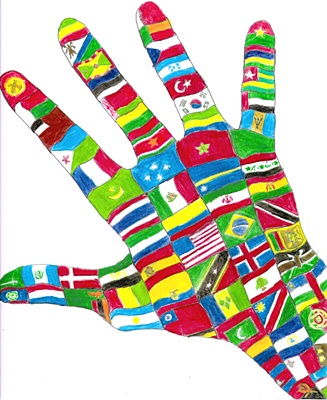All Nonfiction
- Bullying
- Books
- Academic
- Author Interviews
- Celebrity interviews
- College Articles
- College Essays
- Educator of the Year
- Heroes
- Interviews
- Memoir
- Personal Experience
- Sports
- Travel & Culture
All Opinions
- Bullying
- Current Events / Politics
- Discrimination
- Drugs / Alcohol / Smoking
- Entertainment / Celebrities
- Environment
- Love / Relationships
- Movies / Music / TV
- Pop Culture / Trends
- School / College
- Social Issues / Civics
- Spirituality / Religion
- Sports / Hobbies
All Hot Topics
- Bullying
- Community Service
- Environment
- Health
- Letters to the Editor
- Pride & Prejudice
- What Matters
- Back
Summer Guide
- Program Links
- Program Reviews
- Back
College Guide
- College Links
- College Reviews
- College Essays
- College Articles
- Back
Racial Profiling
Imagine that you have just been pulled over by a police officer on Route 522 for “speeding.” This has never happened before. Later that day, you find yourself in the American Eagle looking to buy a sweater. As you enter the store you feel a presence hovering over you. You look over your shoulder and a mall security guard is there. Every time you look up, he seems to be interested in what you are buying. The next day, imagine that you are coming back from Susquehanna University, and you are going to your house on Orange Street and as you are walking, someone is approaching you. As they look up from their phone they notice you. They make an immediate beeline to the sidewalk across the street just because of what you look like. Your appearance. Your clothes. Your hair. Your skin.
As you make your way through life, you notice the reoccurrence of second looks and gestures. The impact these interactions have on you is demoralizing and leaves you asking: Does the way I look affect how people treat me?
What you were imagining is called racial profiling and for minorities throughout our country it is an everyday reality. While racial profiling is widely practiced, it is a practice of false assumptions and discrimination and it is inefficacious.
The inefficaciousness is supported by a Chicago study that shows that the city’s data showed that blacks/African Americans and Hispanics were searched 4 times more often than whites, but contraband was found in possession of white drivers twice as often. This shows that the “hit rate”- the targeting of certain people because you think you will commit a crime more often- strategy is very useless and inaccurate.
The inaccuracy and uselessness of the “hit rate” strategy is shown according to the Amnesty International report, in 2004 over 32 million people reported they were unfairly singled out because of their race. That is roughly the population of Australia and Portugal combined. As you can see this affects millions of Americans every year. I interviewed a local minority living in Selinsgrove, and he said he is judged because of what he looks like, “several times a week.” He is not the only one. Therefore, racial profiling should be addressed, especially here in Selinsgrove, because it is unjust and discriminating!
When you think of a typical prison inmate, what do you think of? False assumptions can be so critical in life. Have you ever heard don’t judge a book by its cover? I believe everyone should live by that. Of the 52 people exonerated for murder last year, over half of them were black. That is not a coincidence.
A media organization the addresses todays’ critical issues, New Republic, says that in 2014, in Ferguson Missouri, 93% of people pulled over during a traffic stop were black, and whites only made up 7%. Despite that fact, they found contraband on more than a third of their white drivers and less than a fifth on their black ones. This happens repeatedly in cities all over the country every year.
People may say that racial profiling is effective and that officers should do it at traffic stops. They say that since that certain group commits more crime that they should be targeted more. That would make sense but, as stated in two of my sources, white people commit more crime at traffic stops than black people.
Let’s go back to the day you are in the American Eagle and when you look over your shoulder. You’ve had enough. You confront the guard. He knew what he was doing but he still speaks to you like you’ve done something wrong. He tells you to watch your mouth and he walks away. He walks away a little embarrassed for getting caught but not sorry for what he was doing. He knows. Now you know the inefficaciousness of racial profiling. And you can no longer pretend that you don’t.

Similar Articles
JOIN THE DISCUSSION
This article has 0 comments.

I decided to write this article because I have seen racial profiling take place and it is unacceptable and we need to bring this subject to light.